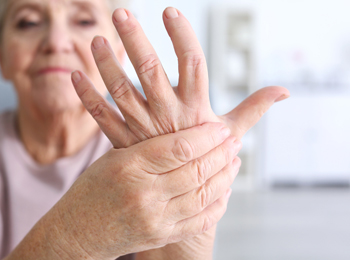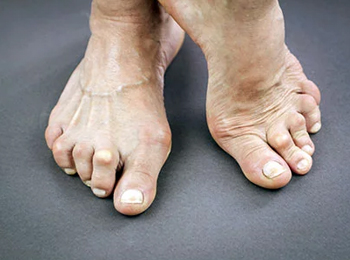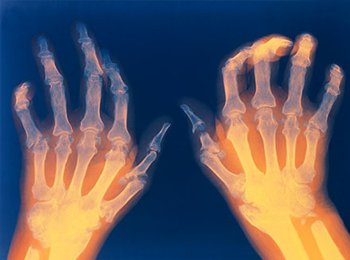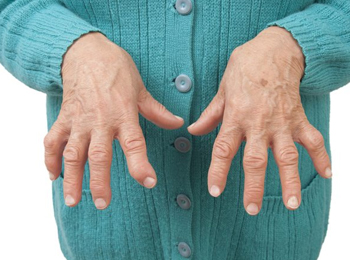Dr. Biplab Dolui
MS (Orthopaedics), AFTS Fellow (Paris), Consultant Arthroscopist, Joint Replacement & Trauma Surgeon
MS (Orthopaedics), AFTS Fellow (Paris), Consultant Arthroscopist, Joint Replacement & Trauma Surgeon
Rheumatoid arthritis is a chronic inflammatory disorder that can affect more than just your joints. In some people, the condition also can damage a wide variety of body systems, including the skin, eyes, lungs, heart and blood vessels.
An autoimmune disorder, rheumatoid arthritis occurs when your immune system mistakenly attacks your own body's tissues.
Unlike the wear-and-tear damage of osteoarthritis, rheumatoid arthritis affects the lining of your joints, causing a painful swelling that can eventually result in bone erosion and joint deformity.
The inflammation associated with rheumatoid arthritis is what can damage other parts of the body as well. While new types of medications have improved treatment options dramatically, severe rheumatoid arthritis can still cause physical disabilities.

Symptoms
Signs and symptoms of rheumatoid arthritis may include:
• Tender, warm, swollen joints
• Joint stiffness that is usually worse in the mornings and after inactivity
• Fatigue, fever and weight loss
• Early rheumatoid arthritis tends to affect your smaller joints first — particularly the joints that attach your fingers to your hands and your toes to your feet.
As the disease progresses, symptoms often spread to the wrists, knees, ankles, elbows, hips and shoulders. In most cases, symptoms occur in the same joints on both sides of your body.
About 40 percent of the people who have rheumatoid arthritis also experience signs and symptoms that don't involve the joints. Rheumatoid arthritis can affect many nonjoint structures, including:
• Skin
• Eyes
• Lungs
• Heart
• Kidneys
• Salivary glands
• Nerve tissue
• Bone marrow
• Blood vessels
Rheumatoid arthritis signs and symptoms may vary in severity and may even come and go. Periods of increased disease activity, called flares, alternate with periods of relative remission — when the swelling and pain fade or disappear. Over time, rheumatoid arthritis can cause joints to deform and shift out of place.

Causes
The cause of RA isn’t known. However, certain factors seem to have a role in increasing the risk of developing RA or triggering its onset. Factors that increase risk of RA include:
• being a woman
• having a family history of RA
Factors that may trigger onset of RA include:
• exposure to certain types of bacteria, such as those associated with periodontal disease
• having a history of viral infections like infection with the Epstein-Barr virus, which causes mononucleosis
• trauma or injury, such as bone breakage or fracture, dislocation of a joint, and ligament damage
• smoking cigarettes
• obesity
Risk factors
Factors that may increase your risk of rheumatoid arthritis include:
• Your sex - Women are more likely than men to develop rheumatoid arthritis.
• Age - Rheumatoid arthritis can occur at any age, but it most commonly begins between the ages of 40 and 60.
• Family history - If a member of your family has rheumatoid arthritis, you may have an increased risk of the disease.
• Smoking - Cigarette smoking increases your risk of developing rheumatoid arthritis, particularly if you have a genetic predisposition for developing the disease. Smoking also appears to be associated with greater disease severity.
• Environmental exposures - Although uncertain and poorly understood, some exposures such as asbestos or silica may increase the risk for developing rheumatoid arthritis. Emergency workers exposed to dust from the collapse of the World Trade Center are at higher risk of autoimmune diseases such as rheumatoid arthritis.
• Obesity - People who are overweight or obese appear to be at somewhat higher risk of developing rheumatoid arthritis, especially in women diagnosed with the disease when they were 55 or younger.

Complications
Rheumatoid arthritis increases your risk of developing:
1) Osteoporosis - Rheumatoid arthritis itself, along with some medications used for treating rheumatoid arthritis, can increase your risk of osteoporosis — a condition that weakens your bones and makes them more prone to fracture.
2) Rheumatoid nodules - These firm bumps of tissue most commonly form around pressure points, such as the elbows. However, these nodules can form anywhere in the body, including the lungs.
3) Dry eyes and mouth - People who have rheumatoid arthritis are much more likely to experience Sjogren's syndrome, a disorder that decreases the amount of moisture in your eyes and mouth.
4) Infections - The disease itself and many of the medications used to combat rheumatoid arthritis can impair the immune system, leading to increased infections.
5) Abnormal body composition - The proportion of fat compared to lean mass is often higher in people who have rheumatoid arthritis, even in people who have a normal body mass index (BMI).
6) Carpal tunnel syndrome - If rheumatoid arthritis affects your wrists, the inflammation can compress the nerve that serves most of your hand and fingers.
7) Heart problems - Rheumatoid arthritis can increase your risk of hardened and blocked arteries, as well as inflammation of the sac that encloses your heart.
8) Lung disease - People with rheumatoid arthritis have an increased risk of inflammation and scarring of the lung tissues, which can lead to progressive shortness of breath.
9) Lymphoma - Rheumatoid arthritis increases the risk of lymphoma, a group of blood cancers that develop in the lymph system.
